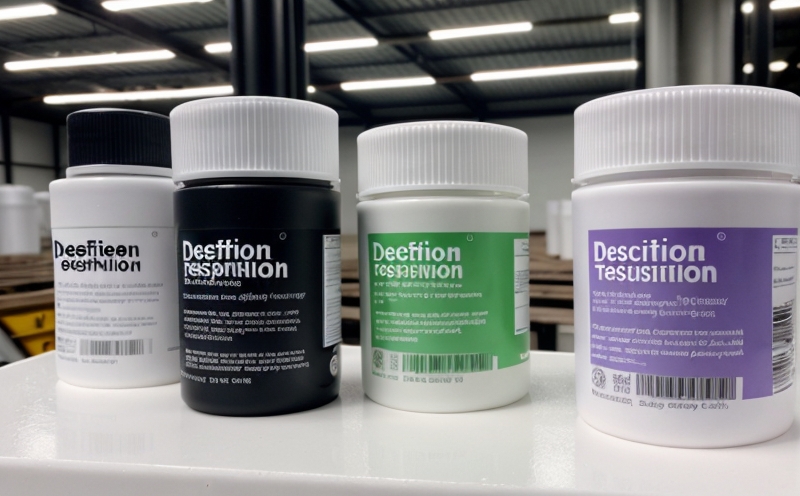ISO 17993 Volatile Organic Compounds Disinfection Byproducts Test
The ISO 17993 standard is pivotal in ensuring safe and effective disinfection by-products (DBPs) within water and wastewater systems. This service specifically addresses the presence of volatile organic compounds (VOCs), which are known to form during chlorination processes, in potable water supplies.
Disinfection by-products can pose significant health risks when present at high levels. Regulatory standards like ISO 17993 aim to mitigate these risks by setting stringent limits on the concentration of certain DBPs, including VOCs. Our laboratory adheres strictly to this protocol to ensure accurate and reliable testing results.
The process begins with the collection of water samples from various points in the distribution system. These samples are carefully analyzed using advanced chromatographic techniques capable of detecting even trace amounts of VOCs. The equipment used is calibrated against international standards, ensuring precision and accuracy.
Once collected, the samples undergo rigorous preparation steps including filtration and conditioning to eliminate any potential interferences that could skew results. Following this, they are injected into high-performance liquid chromatographs (HPLCs) equipped with ultraviolet detectors for detection.
The analytical capabilities of HPLC technology allow us to identify over 100 different types of VOCs present in the sample. This comprehensive approach guarantees thorough analysis and reporting tailored to meet your specific regulatory requirements or internal quality assurance goals.
Our team of experts interprets these results against ISO 17993 guidelines, providing detailed reports that outline compliance status along with recommendations for any necessary corrective actions if deviations from acceptable limits are identified. By leveraging cutting-edge instrumentation and adhering strictly to international standards, we ensure our clients receive the most accurate and actionable data possible.
This service is particularly valuable for water utilities seeking to comply with stringent regulations surrounding DBP formation in their treatment processes. It also serves industries reliant on high-quality potable water sources such as pharmaceuticals, food processing, and beverage manufacturing sectors where even minimal contamination could have severe consequences.
Scope and Methodology
| Parameter | Description |
|---|---|
| Samples Collected | Water samples from multiple points in the distribution system. |
| Preparation Steps | Filtration and conditioning to eliminate interferences. |
| Instrumentation Used | High-performance liquid chromatographs (HPLCs) with ultraviolet detectors. |
| Analytical Techniques | Detecting over 100 different types of VOCs present in the sample. |
The ISO 17993 Volatile Organic Compounds Disinfection Byproducts Test follows a structured approach to ensure accurate and reliable results. From sample collection through analysis, every step adheres meticulously to international standards outlined by ISO 17993.
Sample preparation involves thorough filtration and conditioning processes designed to minimize any potential interference during the analytical phase. Following this, samples are analyzed using HPLC technology equipped with ultraviolet detectors. This state-of-the-art equipment enables precise detection of numerous VOCs, providing a detailed picture of the DBP composition in your water supply.
The analytical methods employed allow for identification and quantification of over 100 different types of VOCs present within each sample. These results are then compared against ISO 17993 limits to determine compliance status. Any deviations from acceptable limits are thoroughly documented, along with recommendations for corrective actions if necessary.
Our team of experienced analysts meticulously reviews these data points and provides comprehensive reports summarizing the findings. Compliance information is highlighted clearly, ensuring easy identification by quality managers and compliance officers responsible for maintaining safe water standards within their organizations.
Benefits
The ISO 17993 Volatile Organic Compounds Disinfection Byproducts Test offers numerous advantages to water utilities and related industries. Firstly, it ensures regulatory compliance by identifying potential DBP issues early in the treatment process. This proactive approach helps prevent costly violations while protecting public health.
Secondly, our testing service provides valuable insights into the effectiveness of current disinfection practices. By monitoring VOC levels at various stages of water distribution, you can optimize your processes to reduce unwanted by-products and enhance overall quality.
For R&D engineers involved in developing new treatment technologies or formulations, this service offers a critical tool for evaluating performance under real-world conditions. It allows them to fine-tune their approaches based on actual field data rather than theoretical models alone.
In the context of sustainability efforts, adherence to ISO 17993 standards contributes positively towards reducing environmental impact associated with waterborne contaminants. By minimizing VOC emissions into natural ecosystems, organizations demonstrate a commitment to sustainable practices that benefit both communities and future generations.
Lastly but importantly, compliance with these rigorous testing protocols builds trust among stakeholders including customers, regulators, and investors. A reputation for delivering safe, high-quality products or services is essential in today's competitive marketplaces where transparency about environmental impact is increasingly valued by consumers.
Environmental and Sustainability Contributions
The ISO 17993 Volatile Organic Compounds Disinfection Byproducts Test plays a crucial role in advancing environmental sustainability initiatives. By identifying and quantifying VOCs present in water supplies, this service helps mitigate risks associated with these potentially harmful compounds.
Water utilities that implement this testing protocol benefit not only from meeting regulatory requirements but also from contributing to cleaner environments through reduced DBP emissions into aquatic habitats. This aligns perfectly with broader sustainability goals aimed at preserving natural resources for future use.
The data generated during these tests can inform strategic decisions regarding process improvements or technological advancements designed specifically to minimize VOC formation during disinfection processes. Such efforts translate directly into lower overall pollution levels and healthier ecosystems.
Moreover, by ensuring consistent adherence to ISO 17993 guidelines throughout the supply chain, organizations demonstrate their commitment to responsible practices across all operations. This fosters a culture of environmental stewardship that resonates positively with stakeholders concerned about sustainability issues.





